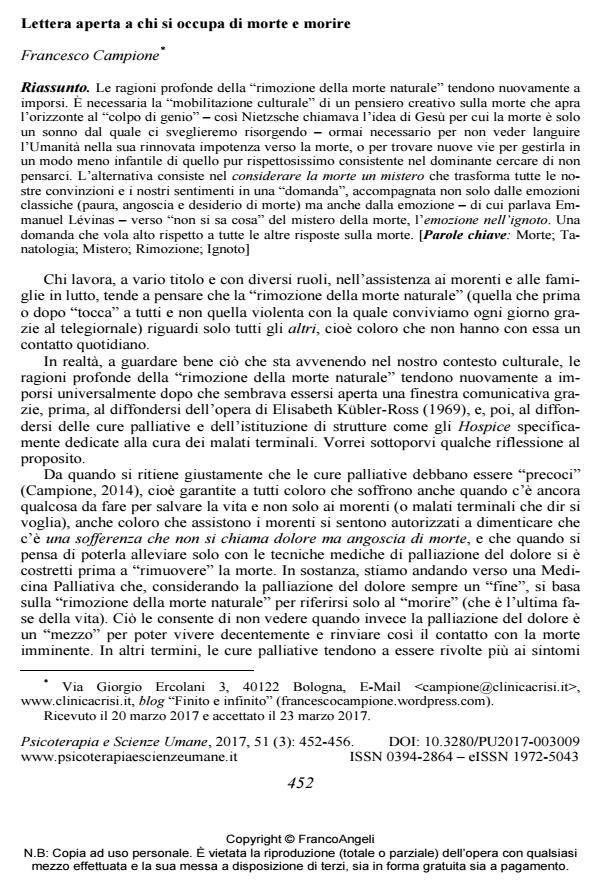Open letter to those who deal with death and dying
Journal title PSICOTERAPIA E SCIENZE UMANE
Author/s Francesco Campione
Publishing Year 2017 Issue 2017/3
Language Italian Pages 5 P. 452-456 File size 129 KB
DOI 10.3280/PU2017-003009
DOI is like a bar code for intellectual property: to have more infomation
click here
Below, you can see the article first page
If you want to buy this article in PDF format, you can do it, following the instructions to buy download credits

FrancoAngeli is member of Publishers International Linking Association, Inc (PILA), a not-for-profit association which run the CrossRef service enabling links to and from online scholarly content.
The real causes of "repression of natural death" become once again relevant. It is necessary the "cultural mobilization" of a creative thinking on the issue of death which can promote the "stroke of genius" - as Nietzsche called Jesus’ idea that death is only a kind of sleep from which we awake with resurrection - that is now necessary in order not to let mankind languish in its impotence toward death; it is also necessary to find new ways of dealing with death that are different from the usual - and childish, although understandable - habit of never thinking of our future death. The alternative is to consider death a mystery able to transform all our beliefs and feelings into a "question", accompanied not only by the typical emotions (fear, anxiety, death wish) but also by what Emmanuel Lévinas called the emotion towards "what we do not know" of the mystery of death, the emotion in the unknown. This question is on a much higher level than all other answers regarding death.
Keywords: Death; Thanatology; Mystery; Repression; Unknown
Francesco Campione, Lettera aperta a chi si occupa di morte e morire in "PSICOTERAPIA E SCIENZE UMANE" 3/2017, pp 452-456, DOI: 10.3280/PU2017-003009